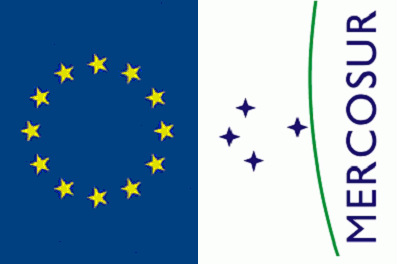QUT Media – 19 July 2023

19th July 2023
Australia needs a new, independent regulatory body and specific offences, penalties and remedies to curb deceptive ‘greenwashing’ marketing claims after the ACCC found the practice was rife among Australian companies.
- Vague and unqualified claims about environmental sustainability by Australian companies common: ACCC
- Australia should copy EU’s Green Claims Directive to regulate greenwashing
- Attempts at self-regulation not sufficient to protect consumers
QUT law Professor Matthew Rimmer made the call in a submission to the Senate Standing Committee on Environment and Communications Inquiry into “greenwashing … and legislative options to protect consumers”.
Professor Rimmer said Australia’s current regime for regulating greenwashing was fragmented and fractured.
“It is split across consumer law, competition policy, corporations law, advertising standards, and intellectual property,” he said.
“Australia needs a regulatory body, with specialist knowledge, to address misleading and deceptive environmental claims. There should be proper enforcement against the scourge of greenwashing in Australia.”
Professor Rimmer said Australia should emulate the European Union, which is establishing a Green Claims Directive to address concerns about greenwashing in the marketplace.
The Australian Competition and Consumer Commission
Professor Rimmer said the interest of the ACCC (Australian Competition and Consumer Commission) in the topic of greenwashing had waxed and waned – depending upon government priorities.

“The ACCC has shown a renewed interest in the topic and has been the most vigilant greenwashing regulator in Australia,” he said.
“For example, the ACCC fined Volkswagen $125 million under Australian Consumer Law after the company concealed software in vehicles to cheat emissions testing and mislead consumers about compliance with regulations on emission levels.
“The ACCC was responsible for a court enforceable undertaking by LG over a breach of the Trade Practices Act by misrepresenting the comparative energy consumption of refrigerator models.”
Professor Rimmer said ACCC had held an ‘internet sweep’ in October 2022 and found widespread problems with dubious environmental and sustainability claims.
“They looked at 247 business in eight sectors including energy, vehicles, food, cleaning products, clothing and takeaway packaging,” he said.
“The internet sweep uncovered vague and unqualified claims, a lack of substantiating information, the use of false comparisons, exaggerated benefits, or omission of relevant information.
“They were concerned about the accuracy of absolute claims such as ‘100 per cent plastic-free’ or ‘100 per cent recyclable’ and questioned aspirational claims such as ‘zero emissions by 2030’.
“Another questionable ploy was the misuse of third-party certification or the addition of trust marks when there was no third-party endorsement.”
Professor Rimmer said ACCC chair Gina Cass-Gottlieb had told a parliamentary hearing that many consumers based their buying decisions on products’ sustainability credentials.
“She said that environmental claims needed to be underpinned by ‘scientific and rigorous processes’ and that false claims about, for example, achieving net zero carbon emissions would be ‘an unfair competitive situation’.”
Professor Rimmer said, given the ACCC’s finding about the extent of greenwashing and the AANA’s inability to regulate it, Australian Consumer Law should include specific offences and penalties for false and deceptive green marketing.
Ad Standards
In the submission, Professor Rimmer said the model of self-regulation for environmental claims administered by the Australian Association of National Advertisers’ (AANA) had been a failure.
“As the consumer watchdog CHOICE warned back in 2009, ‘the Environmental Claims Code has seen very few green claims investigated satisfactorily’,” he said.
“AANA’s Ad Standards Community Panel has dismissed a score of complaints about greenwashing on questionable grounds.
“The most recent dismissal of a complaint was from the Environmental Defenders about Shell Australia’s claim it planned to be a net zero business by 2050.
“The complaint pointed out that Shell, already one of the country’s biggest polluters, was exploring new oil and gas fields across Australia.
“Furthermore, the Environmental Defenders’ complaint showed that the $500,000 Facebook video spruiking this net zero target did not align with internal Shell emails shown to a US Government committee which stated net-zero was ‘not a Shell business plan’.
“The Community Panel’s reason for dismissal included that Shell’s ad was not misleading nor deceptive and that the ‘advertisement provided sufficient detail to support the Claims as they relate to the organisation in a manner which can be understood by the consumer’.”
Professor Rimmer recommended Australia adopt the UN’s Net Zero Expert Group principles and develop clear standards for net-zero emissions pledges by business, investors, cities and region.
Professor Rimmer’s submission is no 90 here.
QUT Media contacts:
Niki Widdowson, 07 3138 2999 or n.widdowson@qut.edu.au
After hours: 0407 585 901 or media@qut.edu.au.





